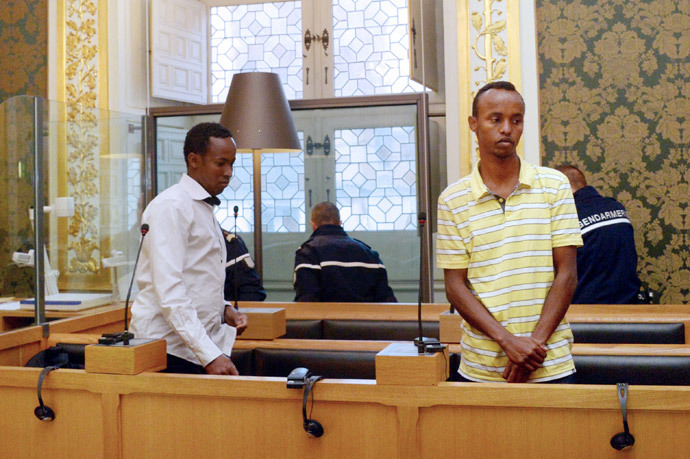The European Court of Human Rights has ruled the French government should compensate a group of Somalian pirates, because they had their ‘right to freedom and security’ “violated” after they were arrested in 2008.
The court found that because it took too long to get the pirates before a judge in France – they had been arrested over 6,000 kilometers away from French territory – they had been wronged, and therefore should be paid between £6,300 and £8,700 each in compensation. Up to £4,000 of that compensation per pirate was for “moral damage” caused to them by the government reports Russia Today.
Although the court accepted the arrests, which took place in Somalia consisted of “completely exceptional circumstances”, nonetheless “nothing justifies such an additional delay”, a judgement that has surprised many observers, considering the brutality of their crimes.
One of the gangs involved in the case hijacked the French superyacht Le Ponant, which was taken with all 30 crew in the Gulf of Aden in April 2008, after being stormed by a gang of twelve men armed with rocket launchers. The crew were later released after the payment of a $2 million ransom, but the captors were shadowed back to their village by French and Canadian forces before being captured themselves.
The pirate gang complained they had been detained an extra 48-hours longer than necessary by French authorities, after having detailed 30 crewmen for random for a week themselves.
Although now largely abating, five years ago piracy was a major concern off the coast of Somalia in the Indian Ocean and the Gulf of Aden, and Western governments responsible for large merchant shipping fleets grappled with means to deter attacks.
The British Royal Navy has maintained a presence in the area, attached to the United States’ international Combined Task Force 150, which patrols the waters for pirate activity. Although the ship on rotation in the area has seen some success dealing with pirates, the rules of engagement have prevented marines from arresting pirates unless they discover them during an act of piracy. If a boat is discovered with piracy equipment such as ladders, rope, and automatic weapons, they are obliged to be let go freely.
There has been a reluctance among European nations to try caught pirates onboard military craft or back in Europe, as was the case with this gang because in some cases those tried could appeal to the European Court of Human Rights, or apply for asylum. In many cases those arrested have been transferred to Commonwealth partners Kenya or the Mauritius for trial, as they have more direct court systems and less pleasant prisons.
Other nations have taken a more direct approach to dealing with Piracy. Even at the height of the piracy surge off the East African coast, Russian merchant ships had a reputation among counter piracy specialists and insurers for being immune to attacks. It was then commonly understood in Mogadishu and the numerous pirate-harbouring villages of Somalia that the crew of Russian ships showed little interest in the human rights of raiders, and preferred to shoot first and ask questions later.

COMMENTS
Please let us know if you're having issues with commenting.